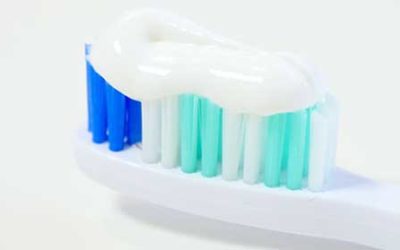Let’s first talk about what xylitol is. Xylitol is a sugar alcohol. The suffix “itol” is how you can most often identify a sugar alcohol. Ironically, sugar alcohols are neither sugar nor alcohol. They are basically water-soluble solids found in plants and berries whose carbohydrates are altered through a chemical process. These common sugar alcohols like sorbitol, maltitol, and erythritol are derived from cornstarch.
Xylitol is actually manufactured from birch wood, corncobs, and the stalk residue from sugar cane. Sugar alcohols are low calorie sweeteners used instead of sugar in many foods.
So, is Xylitol Good for Diabetics?
The simple answer is: Yes. Xylitol (and other sugar alcohols) are natural. They are not artificial sweeteners like Splenda or Aspartame. The body also breaks them down rather than just letting them pass through.
Diabetes is the inability to handle glucose, which is the body’s primary energy food, but which we get altogether too, too, much of in our diets. Anything that allows us to decrease the amount of glucose (found in processed starchy foods , table sugar, and especially in our high-fructose corn syrup sweetened soft drinks) in our diets helps us cope better with diabetes. A recent study using xylitol on diabetic rats showed that it helped to normalize all of the laboratory markers for that condition.
Xylitol sweeteners are available for purchase at most stores, and are popular in health food stores. These products can be used the same as typical table sugar. Xylitol reacts the same as table sugar in baking, cooking, or dissolving in liquids. The only place xylitol should not be substituted is for recipes that require a hard crack, like a crème brulee.
So what are the Downfalls of Sugar Alcohols?
Sugar alcohols, like xylitol, are not calorie free. Xylitol, however, does contain 40% fewer calories than table sugar. Sugar alcohols also can cause digestive discomfort, including bloating, gas, and a laxative effect, for many people when eating too much. And dogs can’t tell it’s not sugar so they respond with more insulin and the drop in sugar that results can be lethal. KEEP XYLITOL AWAY FROM YOUR DOGS.
If you have never consumed a sugar alcohol before, it’s important to start in moderation. Many people never have a problem with using these sweeteners, but others are much more sensitive. Typically up to 20 grams per day is fine for individuals, but again, we recommend starting in moderation to see how xylitol or any other sugar alcohol effects your digestion.
Related Articles
What is Pentosuria and How Does it Relate to Xylitol?
What is pentosuria? It sounds a bit daunting doesn’t it? There’s not a lot of information out there about pentosuria, and it can often go overlooked or misdiagnosed. So we thought it would be good to take a quick minute and explain what...
Special Ed and ear infections? Why are they connected?
Ear...
How A Sugar Substitute Can Reduce Cavities
The sugar substitute xylitol is commonly found in sugar free candies, gum, and household sugar alternatives. Xylitol is a natural derivative of fruits, vegetables, plant fibers, and is known in the dental community as the best prevention to tooth decay....
Nasal Irrigation: Washing Away Your Ailments
Having functioning and healthy nasal and sinus passageways can make a world of difference in your daily life. People with allergies often feel wary of enjoying a beautiful day outside because being exposed to allergens such as pollen, dust, and...
Places You Should Substitute Xylitol Sweeteners for Sugar
People often want to find replacements for table sugar in their diets. But which areas are you able to replace sugar? Does xylitol bake as well? Cook as well? Will it dissolve in liquids just as easily? Well the answer to these is yes, yes and...
Xylitol Toothpaste vs Fluoride Toothpaste
Why would you add a sweetener to toothpaste? It might seem counter-intuitive if you aren’t aware of the dental benefits of xylitol. Here’s why we recommend using xylitol toothpaste vs. fluoride only toothpaste. The cavity causing (cariogenic)...











